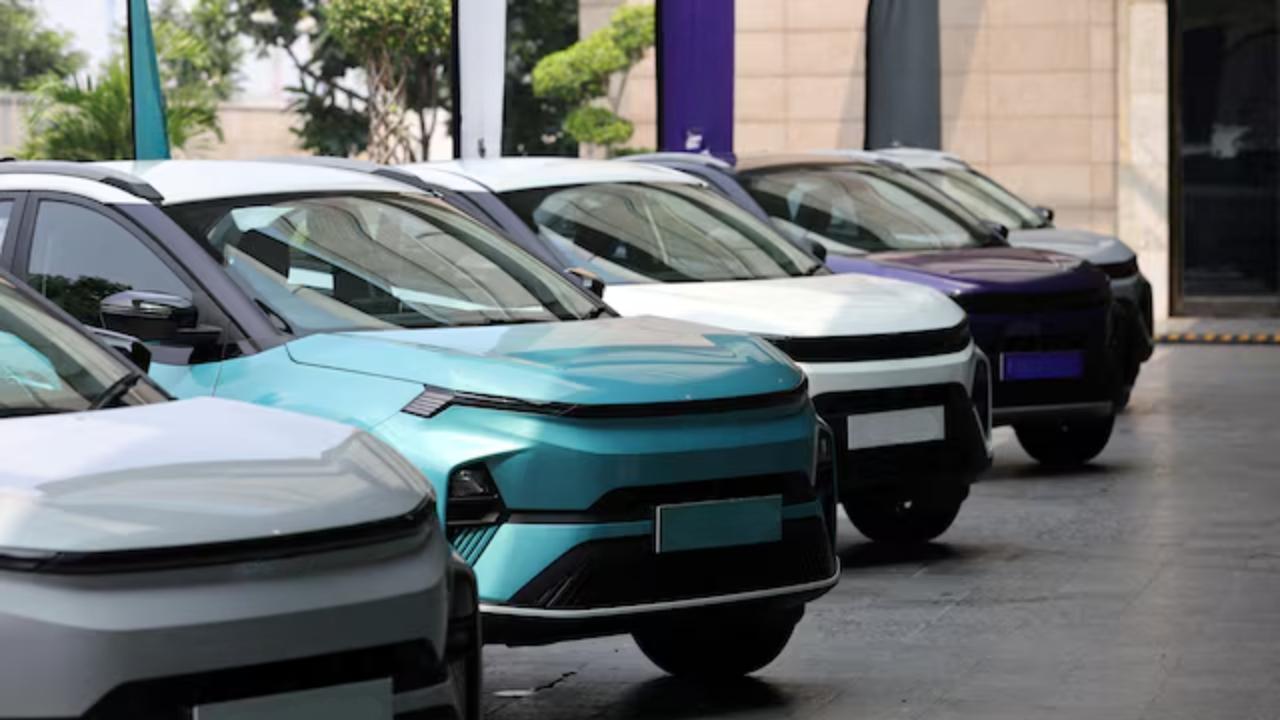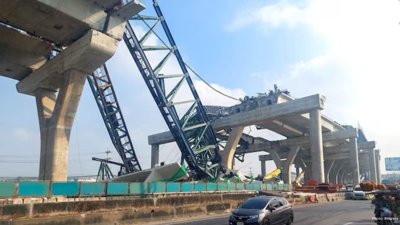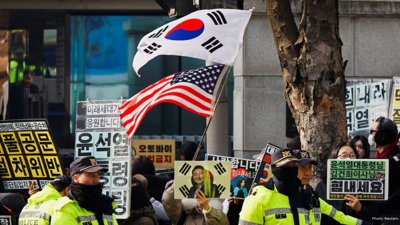
Post by : Amit
Photo: Reuters
New Delhi / Beijing, 2025 — A seismic shift is underway in the global automotive industry, as Chinese electric vehicle (EV) manufacturers have surged to dominate more than half of the world's zero-emission vehicle market, according to a comprehensive new study by the International Council on Clean Transportation (ICCT). The findings confirm what many analysts have long predicted: China is no longer just an emerging player in the electric mobility revolution—it is now the undisputed leader, setting both pace and policy for the future of transportation.
The report reveals that Chinese automakers, led by giants such as BYD, Geely, and SAIC, sold an astonishing 11 million electric vehicles in 2024, accounting for a staggering 56% of all EVs sold worldwide. This figure eclipses the combined efforts of the United States, Europe, Japan, and other regions, which together made up less than half of global EV sales. It marks a pivotal moment not only for China’s auto industry but for the wider transformation of mobility across the globe.
What sets this dominance apart is not merely the volume of sales but the rapid acceleration at which Chinese automakers have overtaken their Western counterparts. BYD, a brand that once trailed industry leader Tesla, has now claimed the top spot as the world's largest electric vehicle manufacturer, controlling 20.5% of the global EV market share, surpassing Tesla's 18.2%. Close behind are other Chinese players like SAIC and Geely, which have each captured double-digit market shares of 12.7% and 10.9% respectively. Together, these brands now occupy five of the top six positions globally, reshaping the competitive landscape of the automotive world.
The data paints a clear picture of regional disparities in EV adoption. While Europe holds 23% of the global EV market, and the United States just 12%, China’s sheer scale—both in manufacturing capacity and consumer demand—has allowed it to surge ahead. Other regions, including Southeast Asia, Latin America, and Africa, account for the remaining 9% of the market, regions where Chinese brands are also making aggressive inroads.
The ICCT report highlights several key reasons behind China's meteoric rise. Foremost among them is sustained government investment. Since 2009, the Chinese government has poured more than $230 billion into electric vehicle research, development, infrastructure, and consumer subsidies. This long-term, strategic commitment has provided the fertile ground for innovation, supply chain expansion, and market adoption—elements that Western nations have often struggled to match with the same consistency or scale.
China’s leadership in battery technology is another decisive factor. The country now produces over 60% of the world’s EV batteries and dominates critical mineral refining and supply chains essential for electric mobility. This control over core technology not only allows Chinese automakers to offer vehicles at significantly lower costs—often 20% to 40% cheaper than their Western rivals—but also insulates them from global supply chain disruptions that have plagued competitors in Europe, North America, and Japan.
Moreover, the Chinese industry’s vertical integration model has proven to be a game-changer. From securing raw materials like lithium and cobalt to producing battery cells, assembling vehicles, and managing after-sales service, Chinese companies control every aspect of the EV value chain. This approach not only slashes costs but also speeds up innovation cycles, allowing companies like BYD and Geely to bring new models to market far faster than their Western counterparts.
In a strategic push to consolidate this advantage globally, Chinese automakers are no longer content with dominating their domestic market. Exports of Chinese EVs have soared across Europe, Latin America, Southeast Asia, and Africa. In the United Kingdom, for example, Chinese brands now account for 9.4% of the EV market as of May 2025—a staggering leap from less than 2% just two years ago. Chinese manufacturers have also begun setting up production plants overseas, with BYD and Geely announcing new factories in Hungary, Thailand, and Brazil to meet rising demand.
However, the ICCT report also casts a sobering light on the challenges facing traditional Western automakers. Brands like Ford, General Motors, Volkswagen, and Toyota have struggled with sluggish EV rollouts, high production costs, and a continued dependence on external battery suppliers. These factors have hampered their ability to compete on both price and scale, leading to declining market shares and mounting investor pressure.
One of the most striking contrasts highlighted in the study is the disparity in government support. While China has maintained aggressive subsidies and policy incentives for both manufacturers and consumers, Western governments—especially in the U.S. and parts of Europe—have wavered in their commitments, leading to inconsistent adoption rates and fragmented infrastructure development. In markets like the U.S., where EV adoption still lags, automakers are caught between regulatory uncertainty, consumer hesitation, and the challenge of transitioning legacy manufacturing systems to electric production.
The report also warns that battery supply dependence remains a major vulnerability for non-Chinese automakers. As Chinese companies control the majority of global battery production and critical raw material supply, Western automakers risk exposure to geopolitical tensions, trade restrictions, and commodity price volatility—factors that could further delay their electric transformation.
The implications of China's EV dominance are profound. Beyond the immediate commercial success, it signals a geopolitical shift in industrial leadership from West to East. Countries that control the future of mobility stand to reap economic, environmental, and strategic advantages. For China, this leadership extends not only to cars but to associated sectors such as battery manufacturing, renewable energy integration, autonomous driving, and artificial intelligence.
ICCT’s findings serve as both a wake-up call and a warning. For automakers in the United States, Europe, Japan, and South Korea, the message is clear: the time to act is now. Speed, scale, and strategy will define success in the EV era. Failure to rapidly transition to zero-emission vehicles risks not only market share but long-term viability in a world where consumers, regulators, and investors are increasingly demanding cleaner alternatives.
The global EV race is no longer a theoretical competition. It is unfolding in real time, with China at the helm. Western automakers, once the undisputed leaders of the automotive world, now find themselves playing catch-up in an industry undergoing the most profound transformation since the invention of the automobile.
China’s rise has also put pressure on global environmental goals. With transportation accounting for nearly one-quarter of global greenhouse gas emissions, the acceleration of EV adoption is critical to meeting the Paris Agreement’s climate targets. China's success in driving down costs and expanding availability has inadvertently provided the world with an essential tool in the fight against climate change. Yet the dominance of one country also raises concerns about supply chain vulnerabilities, market monopolies, and fair trade practices.
Looking ahead, the ICCT predicts that by 2030, electric vehicles could account for more than 60% of new car sales globally if current trends continue—a figure heavily dependent on China’s sustained momentum. Whether the rest of the world can rise to the challenge remains uncertain.
For now, one thing is clear: the era of Chinese leadership in the EV market has arrived. The rest of the world must move quickly, decisively, and innovatively if it hopes to keep pace in the race for the future of transportation.
#trending#latest#ChinaEV#ElectricVehicleMarket#EVIndustryTrends#GlobalEVRace#BYDvsTesla#EVMarketShare#SustainableMobility#ElectricCars2025#GreenAutomotive#ZeroEmissionVehicles










Advances in Aerospace Technology and Commercial Aviation Recovery
Insights into breakthrough aerospace technologies and commercial aviation’s recovery amid 2025 chall

Defense Modernization and Strategic Spending Trends
Explore key trends in global defense modernization and strategic military spending shaping 2025 secu

Tens of Thousands Protest in Serbia on Anniversary of Deadly Roof Collapse
Tens of thousands in Novi Sad mark a year since a deadly station roof collapse that killed 16, prote

Canada PM Carney Apologizes to Trump Over Controversial Reagan Anti-Tariff Ad
Canadian PM Mark Carney apologized to President Trump over an Ontario anti-tariff ad quoting Reagan,

The ad that stirred a hornets nest, and made Canadian PM Carney say sorry to Trump
Canadian PM Mark Carney apologizes to US President Trump after a tariff-related ad causes diplomatic

Bengaluru-Mumbai Superfast Train Approved After 30-Year Wait
Railways approves new superfast train connecting Bengaluru and Mumbai, ending a 30-year demand, easi